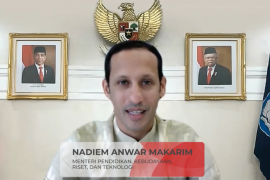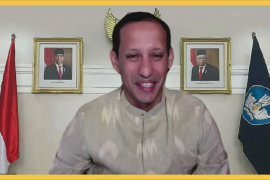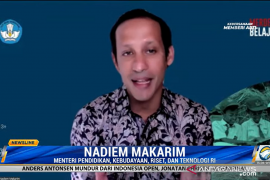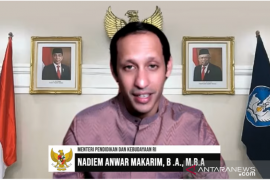We are in an emergency situation of sexual violence in the university environmentJakarta (ANTARA) - Indonesia is currently experiencing an alarming number of sexual violence cases in universities, Education, Culture, Research and Technology Minister Nadiem Anwar Makarim has said.
"We are in an emergency situation of sexual violence in the university environment. You could say the situation is critical. Not only are we experiencing a COVID-19 pandemic, but also a sexual violence pandemic. Data from the National Commission on Violence Against Women shows that sexual violence occurs at all levels of education. As many as 27 percent of the complaints received occurred in higher education levels," he informed at a virtual event originating from Jakarta on Friday.
In a survey conducted by the ministry, 77 percent of lecturers acknowledged sexual violence cases on campus. However, 63 percent of the lecturers said they did not report the cases they knew of to the campus.
Currently, Indonesia is experiencing the "iceberg phenomenon" in terms of sexual violence on campus, Makarim said.
Further digging into the issue would make it apparent that sexual violence is happening on all campuses, he added.
"The government needs to do (take some measures) to protect lecturers and students as well as education staff from sexual violence," he said.
He highlighted that sexual violence is quite difficult to prove, but impactful, saying its effects on victims are long-lasting.
He cited an example of a student who experienced sexual violence on campus, tried to report it, but received no response, became depressed, and eventually quit the campus.
The minister emphasized that it is impossible for a campus to provide quality learning if the lecturers, students, and staff do not feel safe and comfortable. The impact of one event can be felt for a lifetime because it inflicts lifelong psychological damage, he observed.
"We already have several laws, but there is nothing at university (level). We have a child law, but it's only (for those) under 18. There is a violence in household (PKDRT) law, but only for the households. We have a people trafficking law, but only to catch human-trafficking syndicates. So there is a void, because (there are) those who have not been protected who are over 18 years old, not yet or not married, and are not trapped in human-trafficking syndicates,” he elaborated.
Thus, it is necessary to have specific regulations to protect campus residents, he stressed.
He also outlined several limitations in the handling of sexual violence cases under the current Criminal Code. The criminal code does not recognize victims who are not covered by other regulations, it does not recognize online gender-based violence (KGBO), and only recognizes certain forms of rape and obscenity.
And yet, the academic community and education staff are prone to online gender-based violence, given their age bracket as active users of social media and lectures during the COVID-19 pandemic are mostly being conducted online, he added.
Related news: Rectors approve regulation on preventing, handling sexual violence
Related news: Ministry urges campuses to set sexual violence prevention guidelines
Related news: Sexual violence regulation aligns with purpose of education: Ministry
Translator: Indriani, Mecca Yumna
Editor: Sri Haryati
Copyright © ANTARA 2021












